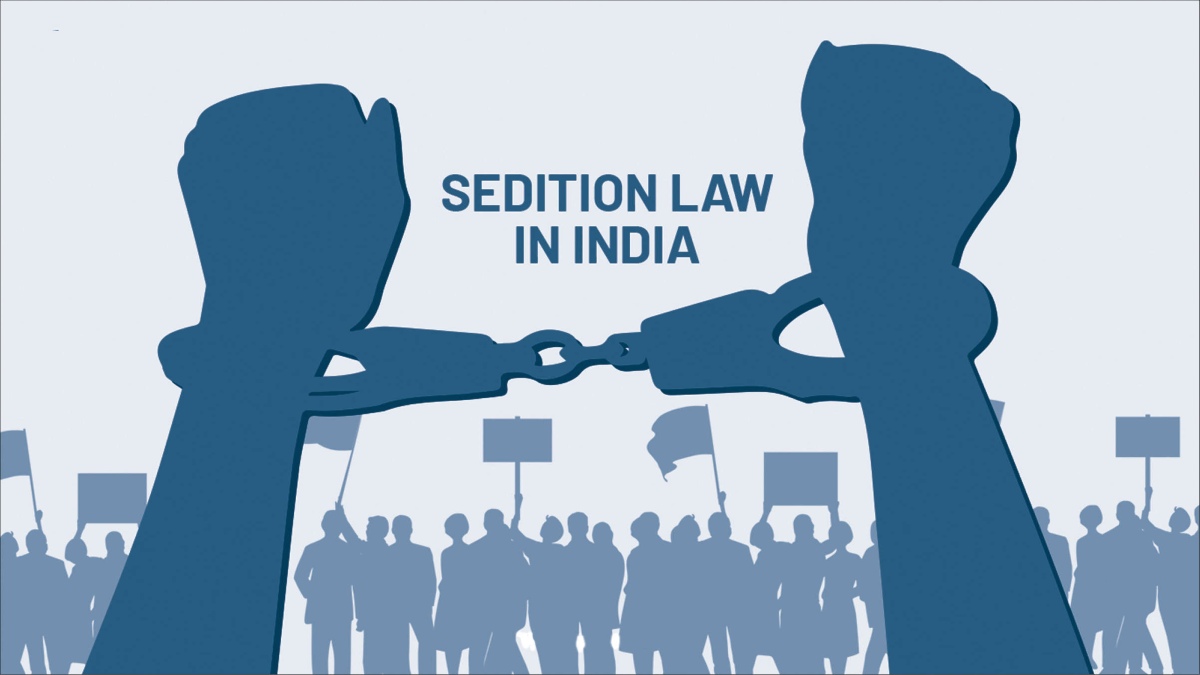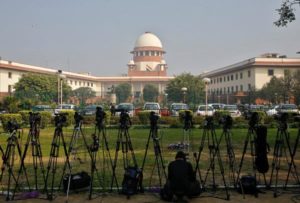India & World UpdatesHappeningsBreaking News
Do you still need ‘colonial law’ of sedition after 75 years of independence, SC asks govt

July 15: The Supreme Court issued a notice to the Centre on pleas challenging the constitutional validity of the sedition law. The Chief Justice of India, NV Ramana questioned that the “law which was used by the British to silence Mahatma Gandhi was still needed after 75 years of Independence.” The petitioner, Major-General (Retd) SG Vombatkere, argues that the sedition law is wholly unconstitutional and should be “unequivocally and unambiguously struck down”.
 “Sedition is a colonial law. It suppresses freedoms. It was used against Mahatma Gandhi, Tilak… Is this law necessary after 75 years of Independence?” Chief Justice Ramana, heading a three-judge Bench, orally addressed Attorney General K.K. Venugopal and Solicitor General Tushar Mehta, appearing for the Centre. Hearing a plea by an army veteran that challenges Section 124A of the Indian Penal Code, popularly termed the sedition law, Chief Justice NV Ramana stated, “The use of sedition is like giving a saw to the carpenter to cut a piece of wood and he uses it to cut the entire forest itself.”
“Sedition is a colonial law. It suppresses freedoms. It was used against Mahatma Gandhi, Tilak… Is this law necessary after 75 years of Independence?” Chief Justice Ramana, heading a three-judge Bench, orally addressed Attorney General K.K. Venugopal and Solicitor General Tushar Mehta, appearing for the Centre. Hearing a plea by an army veteran that challenges Section 124A of the Indian Penal Code, popularly termed the sedition law, Chief Justice NV Ramana stated, “The use of sedition is like giving a saw to the carpenter to cut a piece of wood and he uses it to cut the entire forest itself.”
 “If a police officer wants to fix anybody in a village for something, he can use Section 124A… People are scared. Our concern is misuse of the law and the lack of accountability. Why has it continued in the statute book even after 75 years of our Independence,” Chief Justice Ramana asked the government’s law officers repeatedly. The Chief Justice said the Supreme Court would “definitely look into this Section 124A”.
“If a police officer wants to fix anybody in a village for something, he can use Section 124A… People are scared. Our concern is misuse of the law and the lack of accountability. Why has it continued in the statute book even after 75 years of our Independence,” Chief Justice Ramana asked the government’s law officers repeatedly. The Chief Justice said the Supreme Court would “definitely look into this Section 124A”.
 The apex court said several petitions have challenged the sedition law and all will be heard together. The Attorney General said the law need not be struck down and only guidelines could be set out so that it met its legal purpose. Solicitor General Tushar Mehta told the court, “We will file our reply and that would lessen the burden of the court.”
The apex court said several petitions have challenged the sedition law and all will be heard together. The Attorney General said the law need not be struck down and only guidelines could be set out so that it met its legal purpose. Solicitor General Tushar Mehta told the court, “We will file our reply and that would lessen the burden of the court.”
Originally drafted by Thomas Macaulay — the man credited for bringing English education in India, the sedition law was introduced in India in 1870. Its primary objective was to deal with “increasing Wahabi activities” in India during those times as they posed a challenge to the British colonial government.
 It was expected that an Independent India might not have that sedition law. The original Constitution that was adopted in 1950 did not recognise the sedition law giving right to free speech full protection in the chapter on the fundamental rights. But the first amendment brought in 1951 introduced restrictions that validated the sedition law.
It was expected that an Independent India might not have that sedition law. The original Constitution that was adopted in 1950 did not recognise the sedition law giving right to free speech full protection in the chapter on the fundamental rights. But the first amendment brought in 1951 introduced restrictions that validated the sedition law.
The sedition law reads: “Whoever, by words, either spoken or written, or by signs, or by visible representation, or otherwise, brings or attempts to bring into hatred or contempt, or excites or attempts to excite disaffection towards, the government established by law in India, shall be punished with imprisonment which may extend to three years, to which a fine may be added; or, with fine.”





